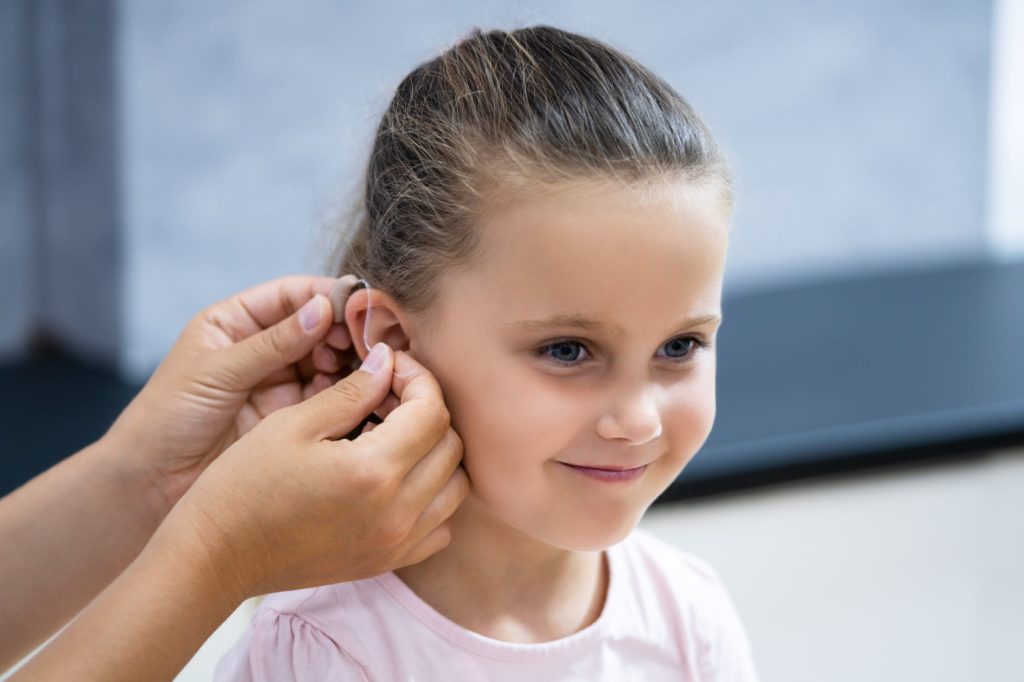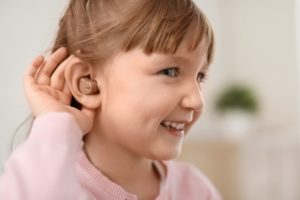As parents, safeguarding your child’s health is a top priority, and their hearing health should be no exception. Children rely heavily on their hearing to learn, communicate and explore the world around them.
Protecting their ears from potential harm and ensuring they have access to proper care is crucial for their development. In this blog, we’ll share practical tips for preventing hearing loss, safe ear-cleaning methods and what to do if you suspect hearing loss in your child.
Why is my child’s hearing so important?
There’s no parent in the world who doesn’t want their child to have optimal hearing health. Hearing plays a vital role in a child’s cognitive, social and emotional development. Even mild hearing loss can impact language development, academic performance and social interactions.
At Hearing Therapy, we believe early detection and prevention are key to maintaining healthy hearing throughout life. By instilling good habits and seeking timely support when needed, you can help your child avoid unnecessary challenges.

How to prevent hearing loss in children
As the old saying goes, prevention is always better than cure, and there are several steps you can take to reduce the risk of hearing damage in your child.
Children’s ears are particularly sensitive to loud noises, which can cause irreversible damage to their hearing. Noise-induced hearing loss (NIHL) is increasingly common, especially with the widespread use of personal audio devices.
Limiting exposure to high noise levels and avoiding prolonged exposure when in loud environments, such as concerts, fireworks displays or sporting events can significantly protect your child’s hearing. Providing well-fitted ear defenders can help you and your child enjoy the show, display or event without worrying about noise-induced hearing loss.
For children aged 0-3 years, we suggest using ear defenders like the Alpine Muffy baby ear defenders, and for children aged 3 years and over, these Vanderfields children’s ear defenders work great. Children’s ear defenders can also come in fun colours and designs to encourage your little one to wear them!
For older children who are into listening to (usually very loud) music on personal listening devices, encourage them to take plenty of breaks, lower the volume and opt for noise-cancelling headphones so volume needn’t be so high. Most modern devices now have the option to set a volume cap which limits how high the volume can go.
Prevent ear infections (where possible)
Whilst it’s important to recognise that not all ear infections can be avoided, there are things we can do to avoid those that aren’t linked to viral infections. Ear infections are among the leading causes of hearing loss in children, but with these proactive steps, you can reduce this risk.
Ensuring your ears are thoroughly dry after bathing or swimming can help prevent ear infections in children. Make it a habit to dry your child’s ears with a soft towel, or by tilting their head to let excess water drain out. Equally, if your child likes to fiddle or tug on their ears for comfort, teaching them to wash their hands often is a simple yet effective way to minimise the spread of germs that can lead to ear infections.
Second-hand smoke has been shown to significantly increase the likelihood of ear infections in children. If you or anyone in your household smokes, consider doing so outdoors and away from your child to protect their ears. By keeping your child’s environment smoke-free, you can greatly reduce their risk of ear-related issues.
We also strongly suggest having routine hearing tests as they’re essential for maintaining hearing health, especially for young children. Hearing assessments can detect early signs of hearing issues, allowing for prompt intervention. Clinics such as Hearing Therapy offer comprehensive hearing tests tailored to children’s needs.
Safe ear cleaning methods for children
Misconceptions about ear cleaning can lead to harmful practices that damage your child’s ears. Here are some safe and effective methods:
No matter your age, be sure to avoid sticking anything into the ear canal, especially the household favourite – cotton buds. We can’t repeat this message enough! Many believe that cotton buds are safe for cleaning ears, but they can push earwax further into the ear canal, causing blockages or even damaging the eardrum.
Instead, we recommend letting the ear’s natural cleaning process work; the body is designed to expel earwax naturally. When needed, use a damp cloth to clean the outer ear. If ear wax has become itchy or uncomfortable, using earwax softeners and jaw exercises can help work the earwax along the canal and encourage the body to expel it.
If your child has excessive earwax, consult a healthcare professional before attempting to remove it. For significant earwax build-up, it’s best to seek professional earwax removal for children. Hearing Therapy provide safe and effective earwax removal tailored to children and are proud to be CQC regulated.

What to do if you suspect hearing loss in your child
If you suspect that your child may be experiencing hearing loss, taking prompt action is crucial. Here’s what you can do:
- Schedule a children’s hearing test: Book a professional hearing test at Hearing Therapy. We specialise in paediatric hearing assessments and will provide a thorough evaluation of your child’s hearing.
- Consult an ENT specialist: An Ear, Nose, and Throat (ENT) specialist can diagnose and treat any underlying conditions contributing to hearing loss, such as infections or structural abnormalities. If we feel that there are further issues that need to be diagnosed, we will let you know.
- Explore hearing solutions: If hearing loss is confirmed, your child may benefit from hearing aids, cochlear implants or other assistive devices. The experts at Hearing Therapy can guide you through the available options.
- Provide early intervention: Early intervention, such as speech therapy or specialised educational support, can help mitigate the effects of hearing loss and ensure your child’s development stays on track.
Educating your child about hearing health
Empowering your child with knowledge about their hearing health can encourage lifelong habits that protect their ears. Explaining the risks of loud noise whilst using age-appropriate language can teach your child why loud sounds can harm their ears. And open communication can help your child feel comfortable discussing any issues they experience with their ears or hearing.
Children’s hearing health is important and Hearing Therapy can help
Protecting your child’s hearing health is an ongoing process that involves prevention, education and timely intervention. By following these tips and staying vigilant for any signs of hearing loss, you can help your child maintain their hearing and overall well-being. For expert advice, hearing tests, and treatment options, book an appointment with Hearing Therapy. Their dedicated team is here to support you and your child every step of the way.
